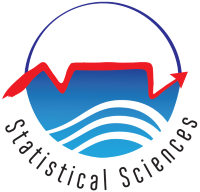The Department of Statistical Sciences offers different streams of support to the UCT community and beyond.
Statistical Consulting Service
The Statistical Consulting Service at the Department of Statistical Sciences offers a professional, statistical consultation service to postgraduate students and researchers at UCT and other academic institutions, and to corporate and NGO clients.
The service spans the following types of activities, and is subject to stipulated terms and conditions:
- Assistance regarding research design (experiments or surveys), sampling design, questionnaire design and data collection methodology
- Guidance for data capturing and verification
- Advice on appropriate software for data analysis
- Data cleaning, validation and manipulation
- Analysis of data
- Assistance with data interpretation
- Referral to statistical specialists when required
More information is available here.
Stats Toolbox seminars
The Centre for Statistics in Ecology, Environment and Conservation (SEEC) at the Department of Statistical Sciences offers SEEC Stats Toolbox seminars as a fundamental part of SEEC’s outreach activities. The aim of these seminars is to showcase statistical methods and analytical frameworks to researchers and students working in the ecological and environmental sciences.
The seminars are designed to provide an introduction to a specific method and illustrate how these methods can be practically implemented using the R software. Apart from introducing new methods to early-career researchers, the seminars also act as a refresher with up-to-date developments to those already familiar with the methods.
The seminars are an hour long and are held monthly during the UCT term. To increase audience participation and widen our reach, each seminar is live-streamed taking the form of a webinar. The seminars are also recorded and, along with materials such as slides and R code, are uploaded and stored on the SEEC website.
Storing the seminar materials on our website has created a diverse repository of methods and resources which can be used in the future by any researcher interested in learning new analytical methods.
More information is available here.
UCT Data Science master's programme
The UCT Data Science master's programme is based on three components of data science: statistical sciences, computer sciences and domain sciences.
The interdisciplinary master's course is offered in collaboration with the departments of statistical sciences, computer science and astronomy in the Faculty of Science; the Computation Biology Group in the Faculty of Health Sciences; and the departments of finance and tax, and economics, and African Institute for Financial Markets and Risk Management (AIFMRM) in the Faculty of Commerce.
There are two programme configurations: (i) 90 credit coursework followed by 90 credit thesis and (ii) 120 credit coursework followed by 60 credit thesis. In both of the configurations, the curriculum comprises of core courses adding to 66 credits, and elective courses adding to achieve the necessary coursework credit requirement.
The core courses are offered by the statistical sciences and computer sciences departments and are as follows: (i) Databases for data scientists, (ii) Visualisation, (iii) MIT: programming in Python, (iv) Multivariate analysis, (v) Data science for industry, (vi) Statistical and high-performance computing, (vii) Supervised learning, (viii) Unsupervised learning, and (ix) Exploratory data analysis.
The elective courses are offered by the statistical sciences, computer science, physics, astronomy, bioinformatics, finance, and economics departments, such as (i) DS for astronomy (ii) DS for particle physics (iii) Bioinformatics for high-throughput biology (iv) DS for industry (v) Decision modelling for prescriptive analytics (vi) Data analysis for high-frequency trading (vii) Data visualisation (viii) Programming in Python (ix) South African financial markets (x) Risk management of financial instruments, and (xi) Fintech and cryptocurrencies.
These core and elective modules are designed to equip the students with the challenging data science related topics such as machine learning and database management.
Students can take data science modules as part of other degree programmes or as an occasional student, provided they satisfy the pre-requisites for the modules and subject to space being available.
